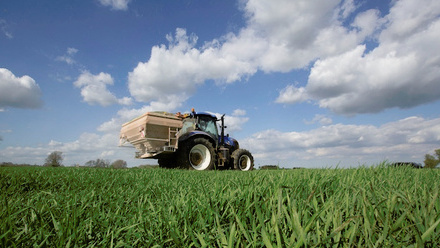EU Animal feed legislation
The European Union (Withdrawal) Act 2018 provided that from 1 January 2021 certain directly applicable pieces of EU legislation would be converted into UK law. Under the Northern Ireland Protocol, however, the province remains in the EU single market and accordingly the necessary EU regulations and checks apply. Elsewhere in Great Britain, EU legislation, as it applied to the UK on 31 December 2020, is now a part of domestic legislation and following that date it ceased to apply.
Summaries and links to the UK animal feed Statutory Instruments on legislation.gov.uk are provided in the section on “Legislation and Guidance” of the AIC website.
Key EU regulations
Information on EU animal feed legislation can be found on the European Commission website.
Regulations are updated and amended, from time to time, further to negotiations at EU level. Amendments to the original text are listed and dated at the beginning of each regulation. From this list, amendments made subsequent to 1 January 2021 can be identified.
The main regulations are as follows:-
- EU Regulation 178/2002 on the principles of food and feed law;
- EU Regulation 183/2005 laying down requirements for feed hygiene;
- EU Regulation 767/2009 on the placing on the market and use of feed;
- EU Commission Regulation 2022/1104 - 4th EU Catalogue of feed materials;
- EU Regulation 2020/354 establishing a list of intended uses of feed intended for particular nutritional purposes;
- EU Regulation 1831/2003 on additives for use in animal nutrition;
- EU Directive 2002/32 on undesirable substances;
- EU Regulation 1829/2003 on genetically modified food and feeds;
- EU Regulation 2017/625 on official controls and other official activities;
- EU Regulation 152/2009 laying down the methods of sampling and analysis for the official control of feed;
- EU Regulation 2019/4 on medicated feed and EU Regulation 2019/6 on veterinary medicines;
- EU Regulation 999/2001 laying down rules for the prevention, control and eradication of certain transmissible spongiform encephalopathies;
- EU Regulation 1069/2009 laying down health rules as regards animal by-products and derived products not intended for human consumption;
- Commission Regulation 142/2011 laying down detailed implementation rules for EU Regulation 1069/2009;
- EU Regulation 2018/848 on organic production and labelling of organic products;
- NB. There is not a single implementing regulation for the organic farming legislation but a series of texts (delegated acts and implementing acts) which are listed here:
ec.europa.eu/info/food-farming-fisheries/farming/organic-farming/legislation_en
The most important ones for the feed sector are Delegated Regulation 2021/642 (labelling of compound feed), Delegated Regulation 2020/2146 (derogation in case of catastrophic circumstances) and Implementing Regulation 2021/1165 (list of non-organic feed ingredients authorised for use in organic farming).



